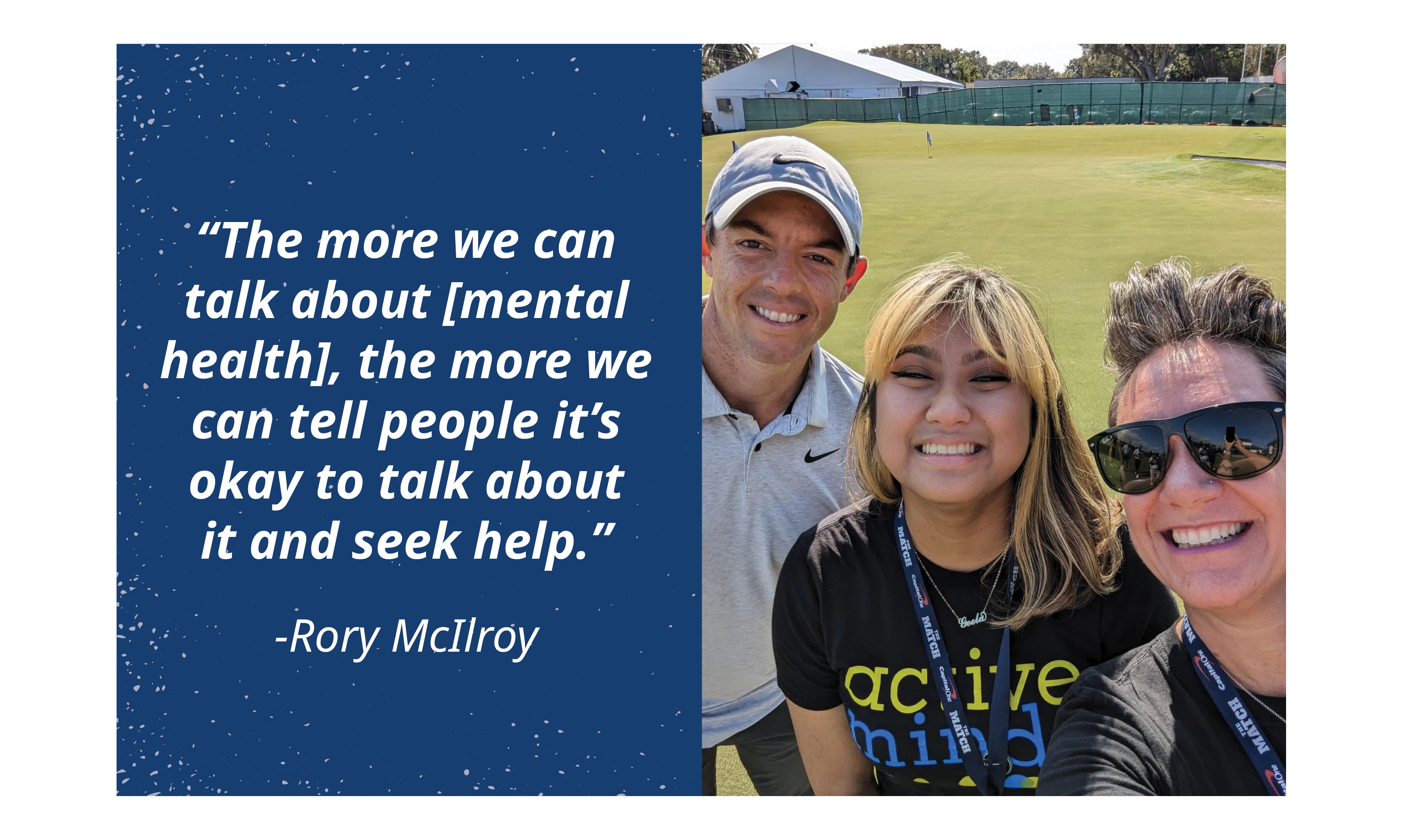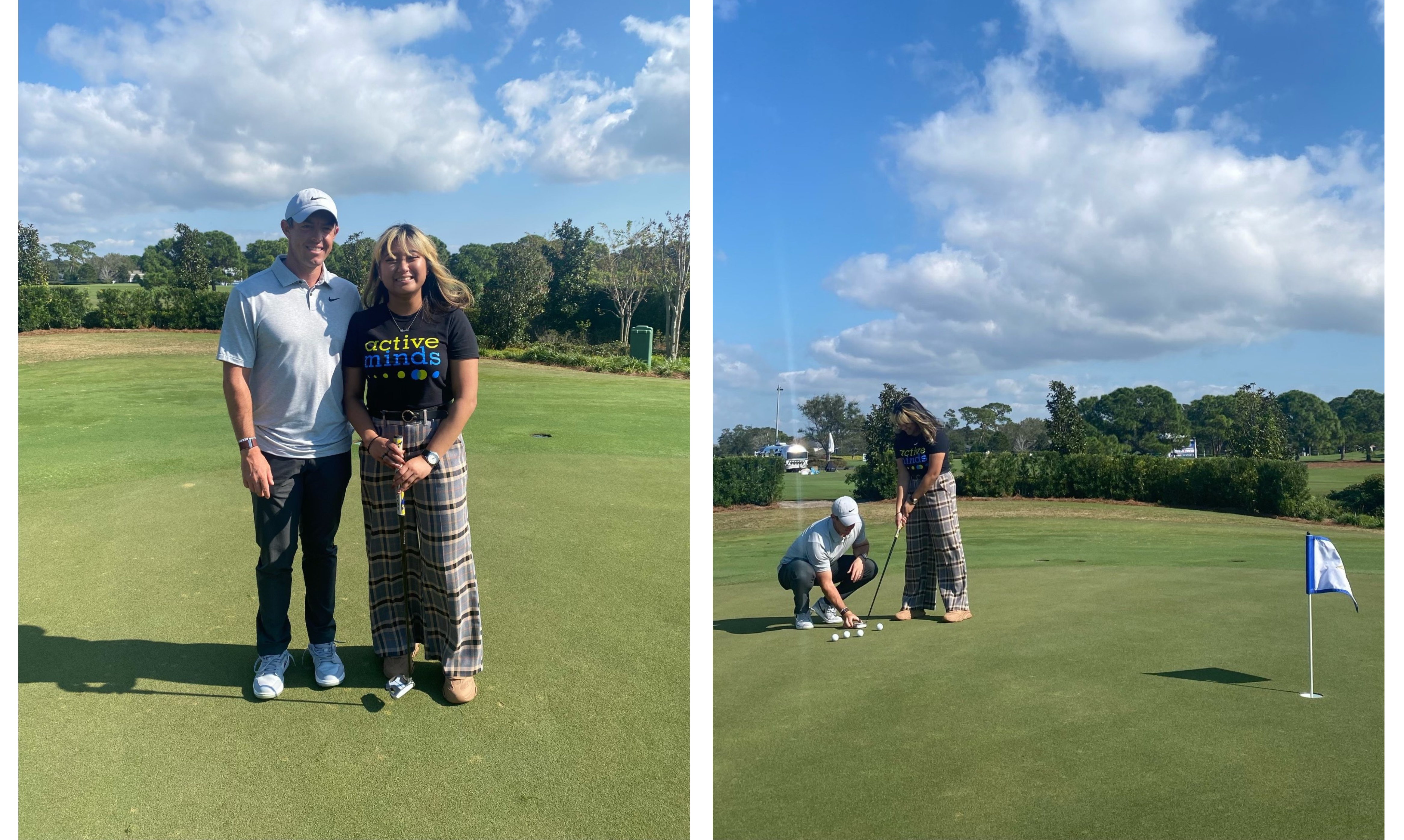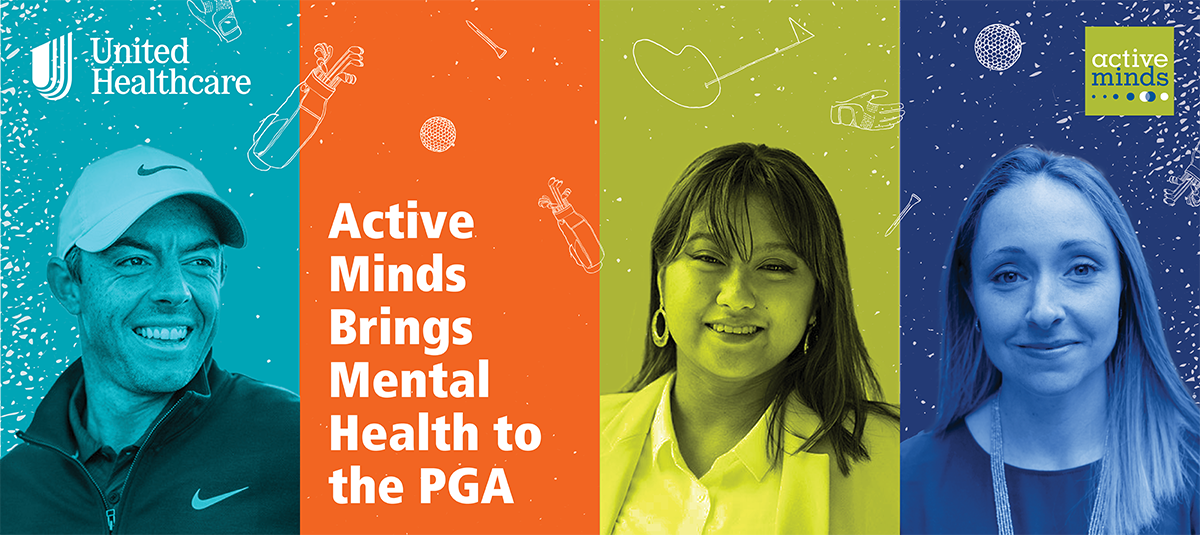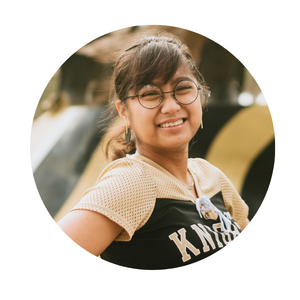I’ll be honest: talking about mental health and Active Minds with Rory McIlroy was not on my 2022 bingo card. But, that’s where I spent this weekend, as a representative of Active Minds, sharing their life-saving mission on national television next to some of the sports’ greatest stars.

I’ve been a part of Active Minds since my freshman year at the University of Central Florida. Since joining, I’ve been a chapter member, chapter president, Active Minds Student Ambassador Member, Active Minds Student Advisory Committee member, and treasurer of the Student Advisory Committee. Needless to say, I’m passionate about what Active Minds does. Their work is unparalleled – they are young adult-focused and led, and believe strongly in Gen Z’s lived experiences around mental health being a catalyst for change. And now, they’re expanding to bring their proven peer-to-peer mental health model to 1,000 new K-12 schools in 1,000 days, with a specific focus on middle schools – I couldn’t be more excited.
This new growth in middle schools is largely thanks to an investment by United Health Foundation, who were also responsible for bringing Active Minds to “The Match” this weekend. When I was in middle school, there weren’t any curriculums built around mental health – it wasn’t a topic of conversation between students, teachers, and administrators. Now, that’s changing – and it couldn’t be more timely. Half of all mental health disorders start by age fourteen. Students are experiencing mental distress before they even step foot in a high school – it’s so important that we meet them where they are, and now, we’re prepared to do just that.
When it comes to doing our best to support youth and young adult mental health, bringing mental health conversations to the classroom is only half the battle. We also need to be inspiring parents and other guardians to talk to their kids about mental health at home, and sharing strategies for taking care of their mental and emotional well-being.
Speaking with Rory about mental health and the work Active Minds is doing, and then seeing him share that message on television at “The Match”, was an honor. I hope those conversations will be a catalyst for adults to talk to the kids and young adults in their lives about what their mental health looks like, and how they can best support them.

Parents, teachers, administrators, and school board members: you all play a role in ending the youth mental health crisis we are currently experiencing. For more information about how you can bring Active Minds’ mental health resources and programming to your school and community, visit the Active Minds website.




